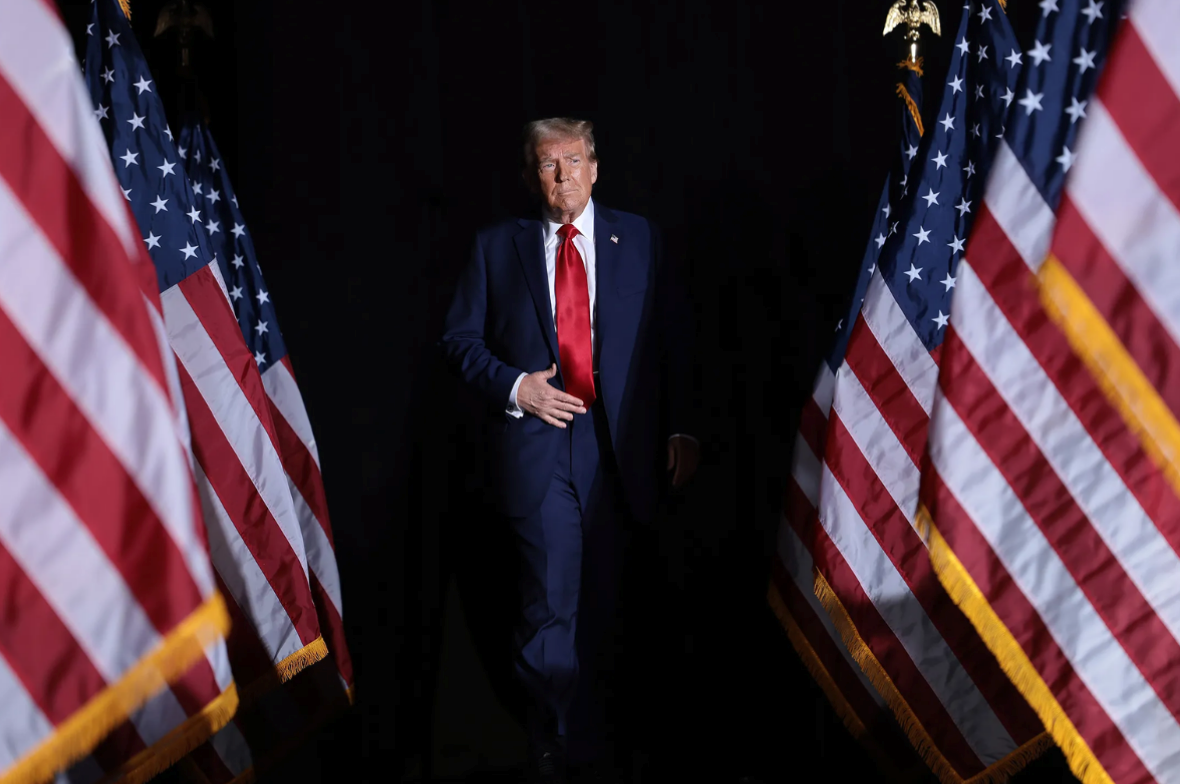In a stunning political comeback, Donald Trump secured victory over Kamala Harris in the 2024 U.S. presidential election. This unexpected turn of events marks a significant shift in the American political landscape, with profound implications for domestic policies and international relations.
Election Results and Immediate Reactions
Donald Trump’s victory has sent shockwaves throughout the nation, as he once again takes center stage in American politics. The election results, finalized after a contentious and closely watched campaign, reflect a deeply divided electorate. Trump’s win underscores his continued influence and the enduring appeal of his populist message among a substantial segment of the American population. His campaign focused on themes of economic revival, national security, and a return to traditional values, which resonated strongly with voters in key swing states. Meanwhile, Kamala Harris, the Democratic candidate, conceded the election with a call for unity and a commitment to continue advocating for progressive values. Her campaign highlighted issues such as healthcare reform, climate change, and social justice, which resonated with many voters but ultimately fell short of securing a majority.
Domestic Policy Implications
Trump’s return to the Oval Office is expected to bring significant changes to U.S. domestic policy.
Trump’s economic agenda will likely focus on tax cuts, deregulation, and boosting American manufacturing. His previous term saw substantial tax reforms, which he argued led to economic growth and job creation. This time, he is expected to push for further tax reductions, aiming to stimulate business investments and encourage companies to bring jobs back to American soil. Critics, however, warn that these policies could increase the national deficit and primarily benefit the wealthy, exacerbating income inequality.
In terms of healthcare, The Affordable Care Act, a cornerstone of Democratic policy, faces renewed challenges. Trump has long advocated for its repeal and replacement with a more market-driven approach. Such changes could lead to significant shifts in healthcare access and affordability, potentially reducing coverage for millions. His administration may introduce healthcare savings accounts and promote competition among providers as alternatives, but these proposals face strong opposition and raise concerns about the healthcare system’s inclusivity.
As was the case during his last run as president, another Trump White House will see a return to stricter immigration policies, with an emphasis on border security and enforcement. Trump’s campaign promises included reviving efforts to complete the border wall and implementing more stringent vetting processes for immigrants. These policies could lead to increased deportations and a more challenging path to citizenship, sparking debates over America’s identity as a nation of immigrants. Human rights advocates express concerns about the effects on asylum seekers and vulnerable populations.
Trump’s administration is likely to roll back environmental regulations, prioritizing economic growth over climate initiatives. This stance may lead to the U.S. withdrawing from international climate agreements, impacting global efforts to combat climate change. While supporters argue that deregulation will boost industries like coal and oil, environmentalists warn of long-term ecological consequences and missed opportunities for renewable energy development.
Lastly, Trump’s victory may embolden conservative efforts to restrict abortion rights and challenge LGBTQ+ protections, potentially leading to significant legal battles across the country. His administration could appoint further conservative judges to federal courts, influencing decisions on contentious social issues. This shift may provoke widespread protests and deepen divisions over personal freedoms and civil rights even more than it already has.
International Implications
Trump’s presidency will also have far-reaching effects on global politics and international relations.
Known for his protectionist stance, Trump may renegotiate trade deals to favor American interests, potentially leading to tensions with key trading partners like China and the European Union. His administration could impose tariffs to protect domestic industries, which might spark retaliatory measures and disrupt global supply chains. Economists warn that such policies could lead to trade wars, affecting international economic stability.
Trump’s previous criticism of NATO and calls for member countries to increase defense spending could strain alliances. His approach might lead to a reevaluation of U.S. commitments abroad, potentially weakening collective defense mechanisms. Allies may be forced to reassess their own security strategies, while adversaries could exploit perceived divisions within the alliance. Furthermore, there is expected to be a continuation of pro-Israel policies and a tough stance on Iran, possibly reviving the “maximum pressure” strategy that characterized his previous administration. Trump’s decisions could influence regional dynamics, affecting peace negotiations and military engagements. Critics argue that such policies may escalate tensions and reduce U.S. credibility as a neutral mediator.
Lastly, Trump’s America First policy may lead to a more isolationist approach, affecting international cooperation on issues such as climate change, pandemic response, and global security. His administration might prioritize bilateral agreements over multilateral frameworks, reshaping global governance structures. This shift could create a vacuum in international leadership, with other nations stepping up to fill the gap.
Reactions and Future Outlook
The international community is closely watching the developments in the U.S. Many leaders have expressed hope for continued collaboration, while others brace for potential shifts in diplomatic relations. The election outcome has sparked debates on the global stage about the future of democracy and the rise of populist movements. In America, Trump’s victory has ignited passionate responses from both supporters and opponents. Proponents celebrate a return to policies they believe will restore American greatness, while critics fear setbacks in civil rights and social progress.
As Trump prepares to assume office, the nation stands at a crossroads. The coming years will be pivotal in determining the direction of U.S. policy and its role on the global stage. The world watches closely, aware that the ripple effects of this election will shape international dynamics for years to come. In conclusion, Trump’s win signifies more than just a political victory; it’s a catalyst for change that will redefine America’s domestic agenda and its interactions with the world. As the dust settles, the nation must grapple with the challenges and opportunities that lie ahead.





















